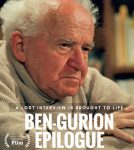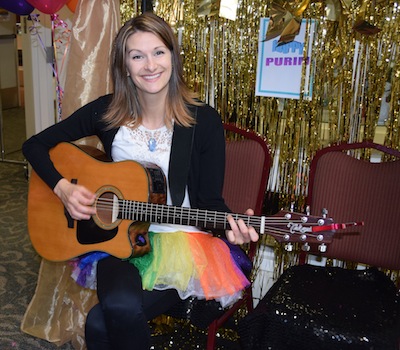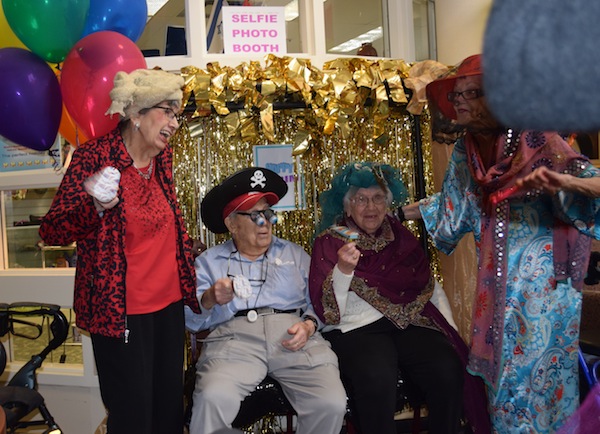Five years before the end of his life, Israel’s first prime minister, David Ben-Gurion, gave six hours of interviews to an American who had recently made aliyah and moved near to Ben-Gurion’s Negev kibbutz retirement home in Sde Boker. The 1968 video footage sat undisturbed in the Steven Spielberg Jewish Film Archive in Jerusalem until it was rediscovered, but the audio was missing. Eventually, it too was found – in the Ben-Gurion archives at Sde Boker. Reunited, the six hours were whittled down by director Yariv Mozer to the one-hour film Ben-Gurion, Epilogue, which is part of this year’s Vancouver Jewish Film Festival.
Mere months after the death of his wife, Paula, Ben-Gurion reflected on his personal and public life. His Zionism was born in his Polish childhood, when the larger-than-life visionary Theodor Herzl traveled the Pale of Settlement. “When Herzl arrived in our little towns, they said, ‘Messiah’s come!’ And I believed it,” Ben-Gurion shared.
Ben-Gurion created a new life at least twice, first making aliyah and bringing to life the Jewish state, then, again, in retirement, when he retreated to the life of a simple kibbutznik in the Negev. His fascination with the desert was sparked in 1954, he said, when he was driving from Eilat back to central Israel and saw a cluster of rudimentary homes by the side of the road. He asked what they were doing there. “We were fighting in the War of Independence in this place,” the pioneers told him. “I decided to join them, to start building up, in the desert, where there is no soil, no water, no grass, no rain.”
The human side of the Ben-Gurion couple is on display through interspersed earlier footage of David and Paula together. In an interview with the BBC’s Malcolm Muggeridge, Paula says she was opposed to David’s retirement from politics. “Because he could not exist without politics,” she says.
“I can exist without politics,” he replies, without looking up.
“No you can’t,” she says. “It’s born in you.”
Likewise, when David gives a ponderous explanation of why he no longer defines himself as a Zionist, Paula deadpans, “I married a Zionist and you are not a Zionist?”
The interviewer draws Ben-Gurion into reflections on his tumultuous time in politics, including the riots that emerged in response to his decision to accept reparation payments, arms and military training from the West German government. But if the viewer is anticipating any earth-shattering revelations, Ben-Gurion is largely glib. Israel needed support and West Germany was offering.
As the Jewish people have a special role in the world, Ben-Gurion says, so does the Jewish state: to reflect the virtues set out by the Prophets. “To be just, truthful, helping all those who need help, and love other men like yourself,” the statesman says. “These are the virtues.”
“Do you think Israel is carrying out that mission?” asks the interviewer.
“Not yet,” Ben-Gurion replies instantly.
Ben-Gurion, Epilogue screens Nov. 6 and 11.
– Pat Johnson
***
In the American film Pinsky, the main character, Sophia Pinsky, has a good life: a job, a girlfriend, an apartment. But then her girlfriend leaves without saying goodbye and Sophia’s life unravels. She moves back home, to join her father, grandmother and brother, all still living together (what a miserable prospect), and the cheerless family dynamics are the focus of the movie.
The family are Russian Jews, and they are all unhappy for various reasons. Sophia works at a Russian grocery store. She feels alone, underappreciated and vulnerable. Nobody understands her. Her grandma tries to set her up with a nice Russian Jewish boy. “You’re too pretty to be a lesbian,” grandma declares, which drives Sophia bonkers.
She misses her girlfriend, she is searching for something big and beautiful, but, unfortunately, nothing even remotely resembling her dreams enters her drab life.
Depression seems to run in the family. Sophia’s brother is an alcoholic. Her father isn’t dealing well with aging. The grandmother, the only colourful character in the movie, is meddlesome and tactless, bossing around everyone in the family.
Everyone is lonely. Nobody understands one another. But, the truth is: none of them even tries to understand anyone else. Everyone concentrates on their own melancholy, hides inside their own bubbles of misery.
This movie reminded me of Chekhov’s plays: everyone is whining and nobody does anything positive. Unlike Chekhov though, this is a fragmented series of moments in the lives of different family members over a few days. The entire dysfunctional family comes under the director’s scrutiny, and all are found wanting.
Pinsky screens Nov. 9. The festival runs until Nov. 12. For the full schedule, visit vjff.org.
– Olga Livshin





